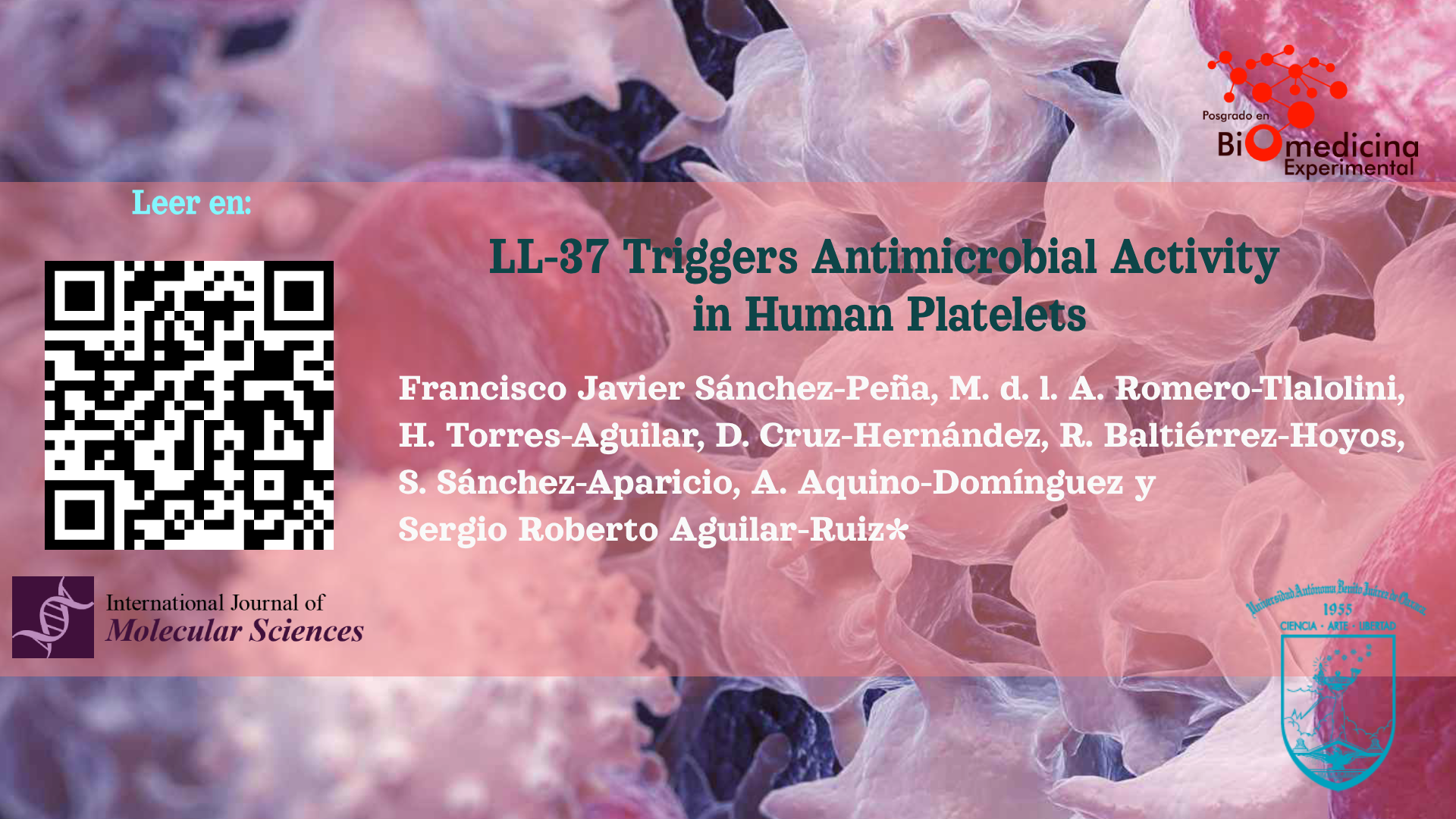LL-37 Triggers Antimicrobial Activity in Human Platelets
Abstract
Platelets play a crucial role in hemostasis and the immune response, mainly by recognizing signals associated with vascular damage. However, it has recently been discovered that the antimicrobial peptide LL-37 activates platelets in functions related to thrombus formation and inflammation. Therefore, this work aims to evaluate the effect of LL-37 on the activation of antimicrobial functions of human platelets. Our results show that platelets treated with LL-37 increase the surface expression of receptors (Toll-like receptors (TLRs) 2 and -4, CD32, CD206, Dectin-1, CD35, LOX-1, CD41, CD62P, and αIIbβ3 integrins) for the recognition of microorganisms, and molecules related to antigen presentation to T lymphocytes (CD80, CD86, and HLA-ABC) secrete the antimicrobial molecules: bactericidal/permeability-increasing protein (BPI), azurocidin, human neutrophil peptide (HNP) -1, and myeloperoxidase. They also translate azurocidin, and have enhanced binding to Escherichia coli, Staphylococcus aureus, and Candida albicans. Furthermore, the supernatant of LL-37-treated platelets can inhibit E. coli growth, or platelets can employ their LL-37 to inhibit microbial growth. In conclusion, these findings demonstrate that LL-37 participates in the antimicrobial function of human platelets.
